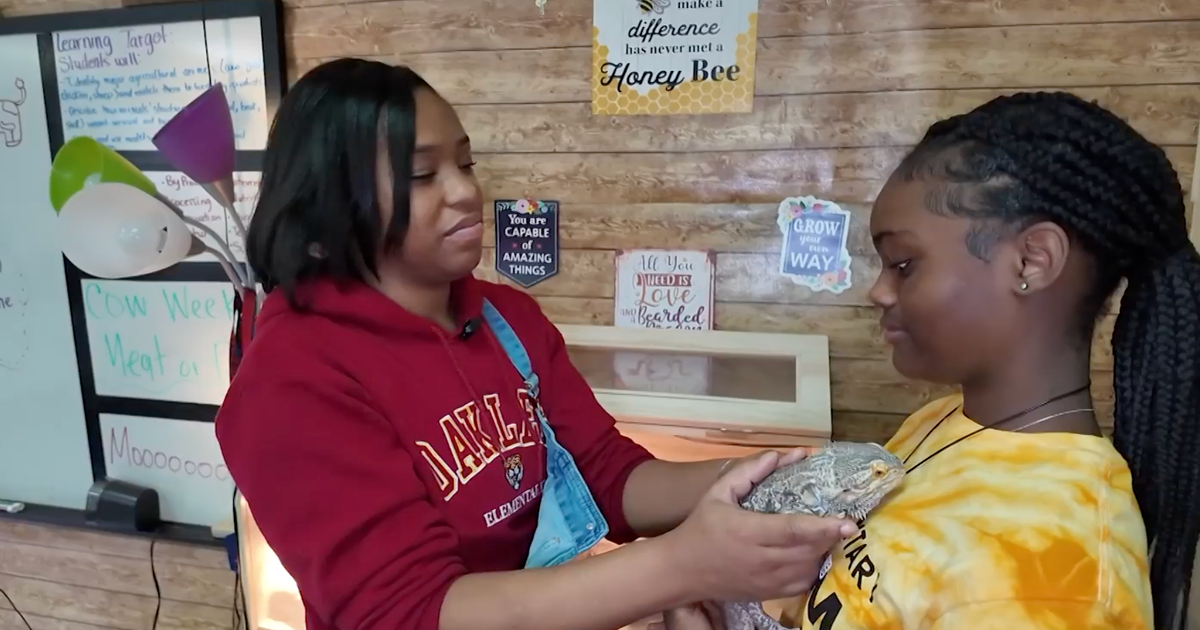No, sabotaged chicken feed isn't making backyard hens stop laying
Social media users claim to have found a new culprit for sky-high egg prices: chicken feed.
The theory gained steam on Facebook, TikTok and Twitter in recent weeks, with some users reporting that their hens stopped laying eggs and speculating that common chicken feed products were the cause. Some went a step further to suggest that feed producers had intentionally made their products deficient to stop backyard egg production, forcing people to buy supermarket eggs at inflated prices.
"One of the largest egg producers in the country cut a deal with one of the largest feed producers in the country to change their feed formula so it no longer contains enough protein and minerals for your chickens to produce eggs," one Facebook user wrote in a post shared more than 2,000 times. "They are now price gouging eggs to make bank."
But poultry experts said there's no evidence for such claims. Here's a closer look at the facts.
CLAIM: Chicken feed companies have altered their products to stop backyard hens from laying eggs and drive up demand for commercial eggs.
THE FACTS: U.S. egg prices in grocery stores more than doubled over the past year due to an outbreak of bird flu, combined with increasing labor and supply costs. A dozen large eggs commanded an average price of $4.25 in December, according to the Labor Department, up from just $1.79 the year before.
More than 58 million egg-laying chickens have been slaughtered as of January 18 to help curb the spread of avian flu, the U.S. Department of Agriculture reported.
Some backyard chicken owners may have separately found their chickens underperforming, but experts said the issues are unrelated. While feed quality can affect hens' egg-laying abilities, state agricultural officials said they have not heard of any widespread issues with feed affecting egg production, and major feed suppliers said they haven't changed their formulas.
"Is there a broad conspiracy? No, there's not a broad conspiracy," said University of Georgia poultry science professor Todd Applegate. "Beyond feed, there are a lot, probably even more so, things from the management and from the bird's environment that creates different things that would cause her to either go out of production or lower her production."
More than 43 million of the 58 million birds slaughtered over the past year to control the bird flu virus have been egg-laying chickens.
"Because of high path avian influenza, we've had to depopulate millions of laying hens," said Ken Anderson, a poultry industry specialist at North Carolina State University. "And when you take that many chickens out of production, there's fewer eggs. And when there's fewer eggs, the price goes up."
Other factors could explain the individual reports of low backyard egg yields, experts say. Limited daylight hours in the winter can reduce or stop hens' egg production, as can cold weather, said Applegate. Improperly stored feed can become compromised and affect egg production, too.
Some social media users claimed specific feed products, particularly Purina Animal Nutrition and Tractor Supply, were at fault. The companies denied blame.
"We confirm there have not been formulation changes to Purina poultry feed products," Brooke Dillon, a spokesperson for Land O'Lakes, the parent company of Purina Animal Nutrition. Mary Winn Pilkington, a spokesperson for Tractor Supply, said its suppliers confirmed there has been "no change to the nutritional profile" of their products.
The theory that feed companies are deliberately trying to sabotage backyard egg supplies found an audience thanks to a broader distrust of government officials and experts, said Yotam Ophir, University at Buffalo professor who focuses on misinformation. It's common for people to look for scapegoats during periods of social anxiety, he said.
"The official narrative is kind of reminding us that we are sometimes vulnerable to the randomness of nature," Ophir said.



